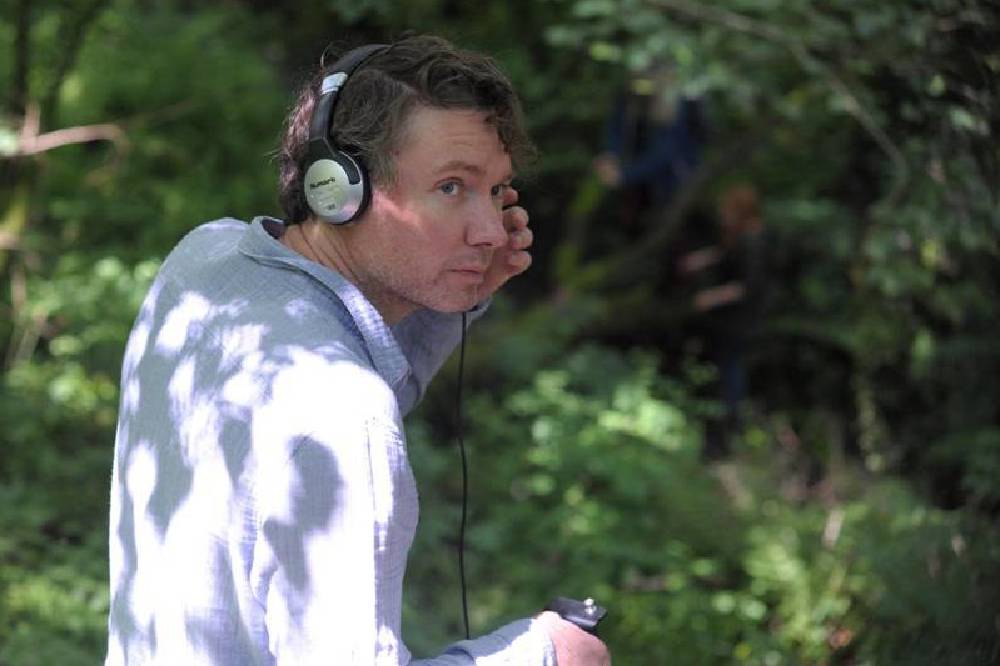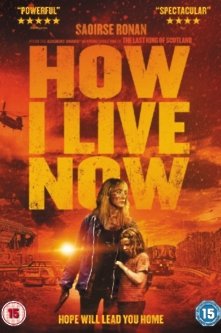
Kevin MacDonald returned to the director’s chair and live action drama last year, with the big screen adaptation of Meg Rosoff’s novel How I Live Now.
We caught up with the filmmaker to chat about the film, working with actress Saoirse Ronan and what lies ahead.
- How I Live Now is about to be released on DVD, so can you tell me a bit about it?
It is a love story that stars Saoirse Ronan, a wonderful Irish actress, who is playing and American in this this film, where she falls in love with her cousin. Then the Third World War breaks out.
It is a movie where an awful lot happens, and I suppose a lot of it is quite shocking. However, at heart, this is a love story and the story of someone growing up.
- You are back in the director's chair for the film, where did this project start for you? Did you get the script or were you introduced to the book?
I read the book by Meg Rosoff, which I thought was beautiful and really original. That is really what made me want to make the film, as I thought it was just a lovely book. I have worked on this project for quite a while before it actually happened.
- This is not your average coming of age tale as it really does take audiences down a very unexpected and dark path - how much was that a draw? It does come as a bit of a curveball.
I really like the idea of taking an audience on, as you say, a radical left turn during the course of the film. At the beginning, you think that it is quite a conventional teen story of an unhappy girl, who is sent to England to stay with her cousins for the summer and find love.
That is what it is, but also a Third World War breaks out and she has to go on this really hard journey in order to get back to the person and the family that she loves.
- There is quite an idyllic feel and look to the first half of the film, then war creeps in and the feel and look of the movie is much darker. Can you talk about how you approached that change in tone and the steps you took to achieve the alternation in the look and feel of the film?
We used a lot of different techniques as well as different camera styles. The film is shot on a particular kind of camera in the first half, which allows us to be very free, organic and loose.
We also graded the film to be very colourful and natural. It should feel alive and nature should feel like it is a friendly presence around you.
Once the war breaks out, all the natural sounds of birds and waving grass disappear, and it becomes a dead, threatening and unfriendly place. The colours shift and are much colder; we use blue and greener.
The camera also stops being handheld and organic, and becomes very objective and are on tripods and cranes; therefore, it is more distant from the characters. The whole feel of the movie, hopefully, shifts for the audience.
- The movie brings together a terrific young cast, so can you talk about the casting process - particularly getting Saoirse Ronan on board? This is perhaps not a role that we have seen her tackle before.
She was not my first choice, as I wanted to get an unknown; I wanted to get a real troubled American teenager of the right age. However, I couldn’t find anyone who was either troubled enough or a good enough actor. So I did what directors always do, and think ‘who is a really great actress who will be able to pull this off?’
Saoirse is the greatest actress of her generation; she is a really remarkable and talented girl. She had read it, and came to audition for me. She just blew me away and was really astonished by the level of emotion that she was able to bring to it.
After that was very simple. I really cast everyone else around her. It all came together quite quickly once I had her; you really need to have one building block around which everything can be suspended.
- How did you find working with Saoirse - especially in the second half of the film where there is considerably less dialogue, long silences and everything is told through her expressions?
I took out quite a lot of the dialogue as I thought her face was so expressive; it really is one of her great talents and abilities as whatever emotions she is feeling are so readable on her features.
She has this tremendous sense of empathy, both understanding other people and other people understanding and feeling for her. That is her great talent I think.
- Last year was a great year for George MacKay and he has been nominated for the Rising Star Bafta, so what was it like working with him - he really is an emerging talent?
He is an absolute delight. I have worked with some famous and experienced actors during my career, but working with a young cast of relatively new talent is so refreshing. We had so much fun on set.
There was no ego brought into things, no sense of entitlement or embarrassment; everyone just got stuck in and had a great time. The set was a really happy and wonderful one.
- This film is based on a book so where there any particular changes that you made, as it was adapted into the screenplay? Were there any parts of the book that you were disappointed you had to leave out?
It is always a painful process leaving things out of the book that you love, but my attitude is you cannot be anxious people missing their favourite moments.
The film is always going to be different from the book as it is your perspective on the book; you maybe just use the book as an inspiration or a jumping off point.
There are things that we changed; there is another brother in the book that we didn’t include. There is also a different ending; Daisy goes back to New York before she comes back to England and meets Edmund.
Edmund and Daisy are slightly younger in the book than in the film. Therefore, things do change for one thing or another: usually to do with structure and casting.
- During your career, we have seen you moved back and forth between live action projects and documentaries, so how do you find making that jump? And how do you find that working in these two different mediums influences one another?
I am just really enjoying doing both, I an easily bored and I want to have as much variety in my life as possible. I suppose I am just curious and interested in real life, and doing documentaries satisfies that aspect.
I stared in documentaries and enjoy the ability that you have to emerge yourself in a totally different world. I may do that for six months or a year, and really do enjoy learning an awful lot about that world during the process.
When you come to fiction, I think I do bring some of that desire for a psychological reality and an interest in politics into my feature films.
- You have also completed work on Black Sea, can you tell me a little bit about that?
I am actually in post-production at the moment; I am getting towards the end of the edit and it will be finished in April/May.
It is completely different sort of film, as it is a submarine thriller. It is a very exciting and tense story of men in search for treasure at the bottom of the Black Sea.
 - Finally, what's next for you as we go through 2014?
- Finally, what's next for you as we go through 2014?
I am finishing Black Sea, so I have three or four months left on that. I am going to take a bit of a break this year; I am looking forward to spending some more time with my kids. I have been working none stop for years and years, and so I have decided to take six months off. It is going to be great.
How I Live Now is out now on DVD & Blu-Ray
Tagged in Kevin MacDonald

